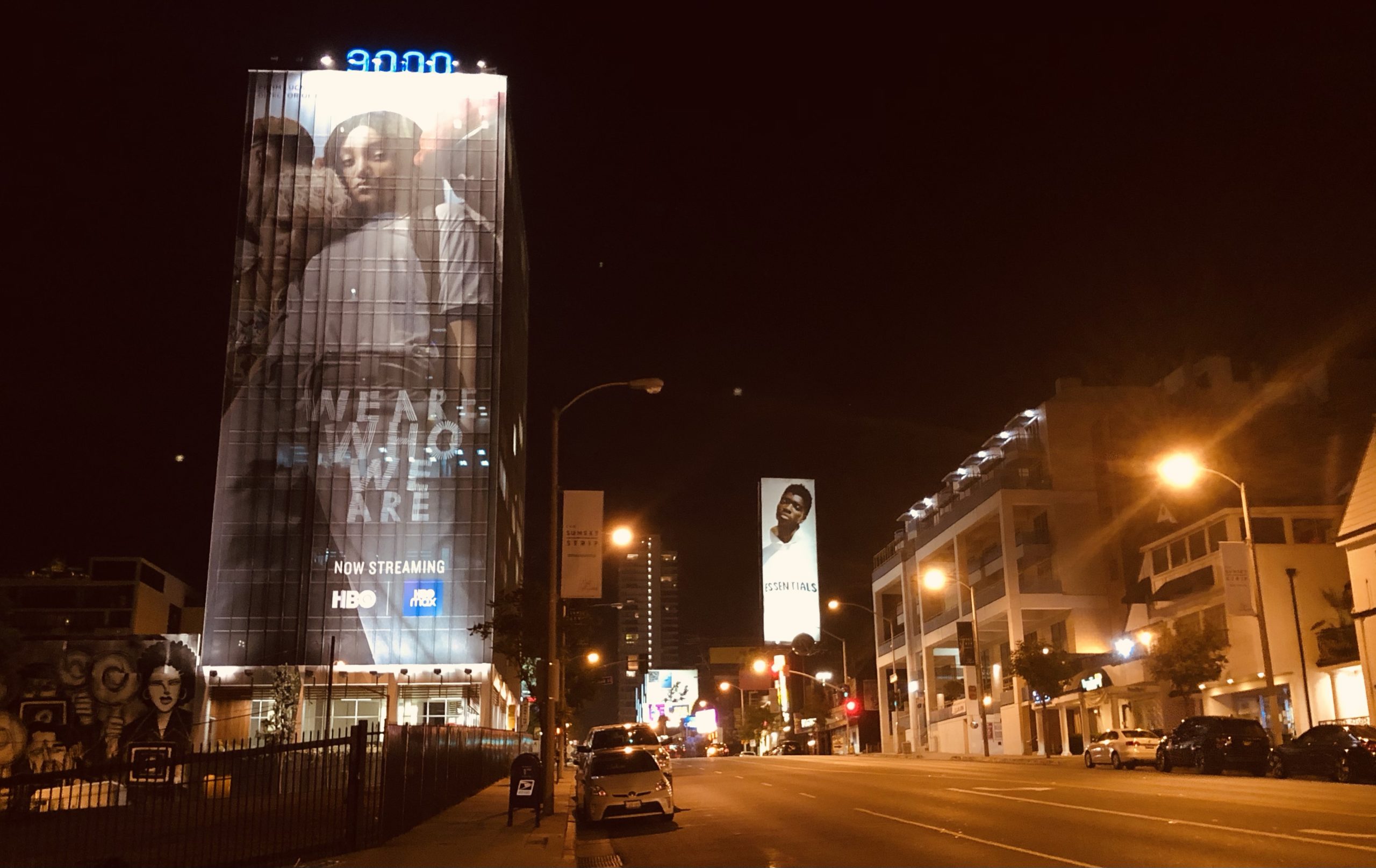Punishment from God the Father Almighty for dishonorably spinning on behalf of Satan’s agent? Just desserts in my book.
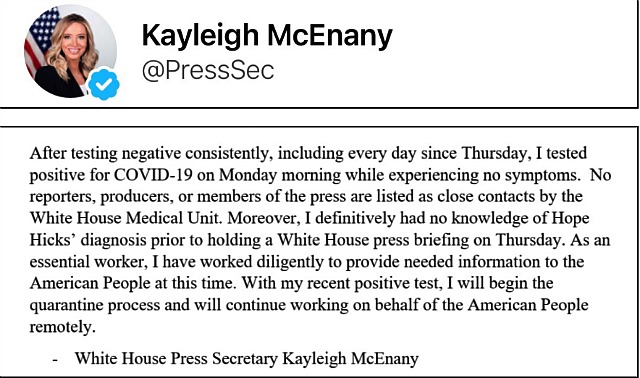
Punishment from God the Father Almighty for dishonorably spinning on behalf of Satan’s agent? Just desserts in my book.

Every now and then ads for 3DM loafers (butterfly, penny) pop up on Facebook. They’re almost right, but not quite. Because they don’t have that easy slip-on look. Because the tongue is too big. To explain how loafers should ideally look, I got out an old pair of Johnston & Murphys that I bought…oh, six or seven years ago. I’ve taken them in for re-heeling and re-soling twice. This is how loafers should look….almost like slippers but with decisive heels and built with first-rate leather.


This Culprit Underwear billboard was sitting on the Sunset Strip last night, and it’s not…Jesus, I don’t know what to think. My first reaction was “holy shit, they’re kidding…right?”
The idea seems to be that most straight guys (the ad is clearly not aimed at gay guys) don’t look like Calvin Klein models. The idea seems to be that if you’re a straight Millennial or Zoomer dude and of average proportion (i.e., between overweight and morbidly obese) and you don’t care if you’re not living up to 20th Century or even early 21st Century standards of male attractiveness…if you’re some kind of animal and couldn’t care less, Culprit Underwear is probably for you.
What else could the message possibly be?
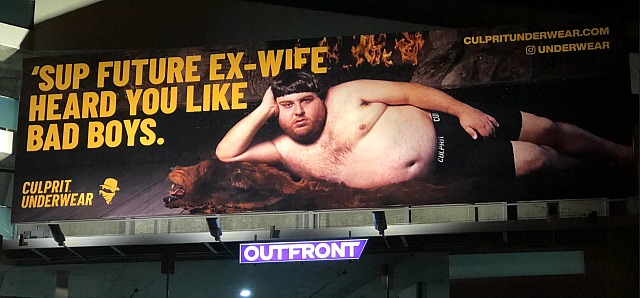
Last night we came upon a West Hollywood apartment complex filled with skeletons and spiders and cobwebs. I see skeletons in my dreams every other night. I see monsters and goblins and giant spiders on the news with alarming regularity. The idea of “celebrating” Halloween just seems off this year. As in “why?” or “what for?” or “who needs it?”
I’m not sure that average voters understand what might happen if the vote goes strongly against Donald Trump on 11.3. I’m not sure that I understand it, but I’m definitely sensing disturbances in the force.



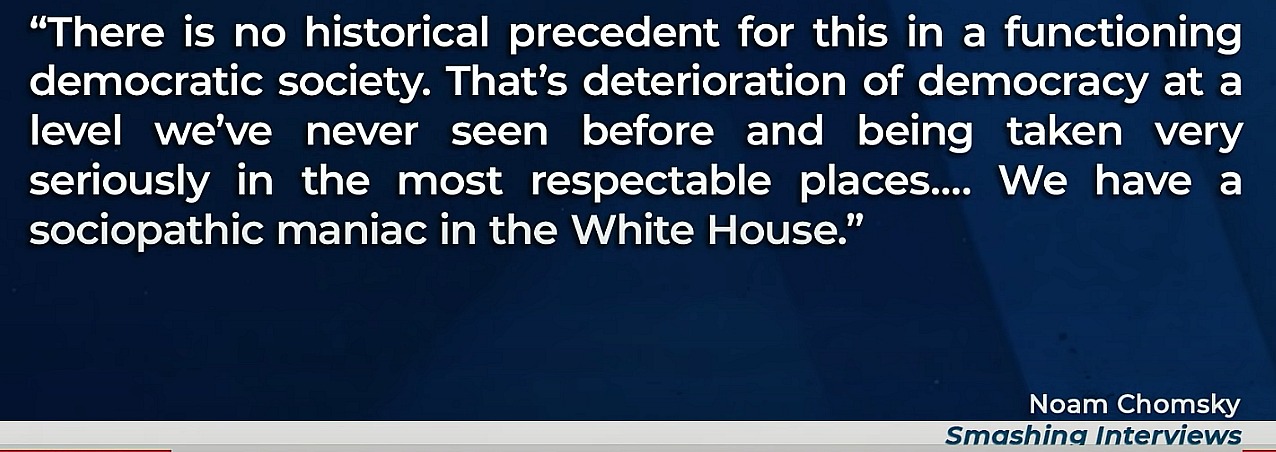
So why was poor Thomas Jefferson Byrd shot and killed early Saturday morning in southwest Atlanta? What the hell happened? An Atlanta Journal Constitution story says the cops found Byrd with “multiple gunshot wounds in his back.” Multiple? That’s rage. That’s wild-eyed, mad-man stuff.
Spike Lee put this on Instagram earlier today:
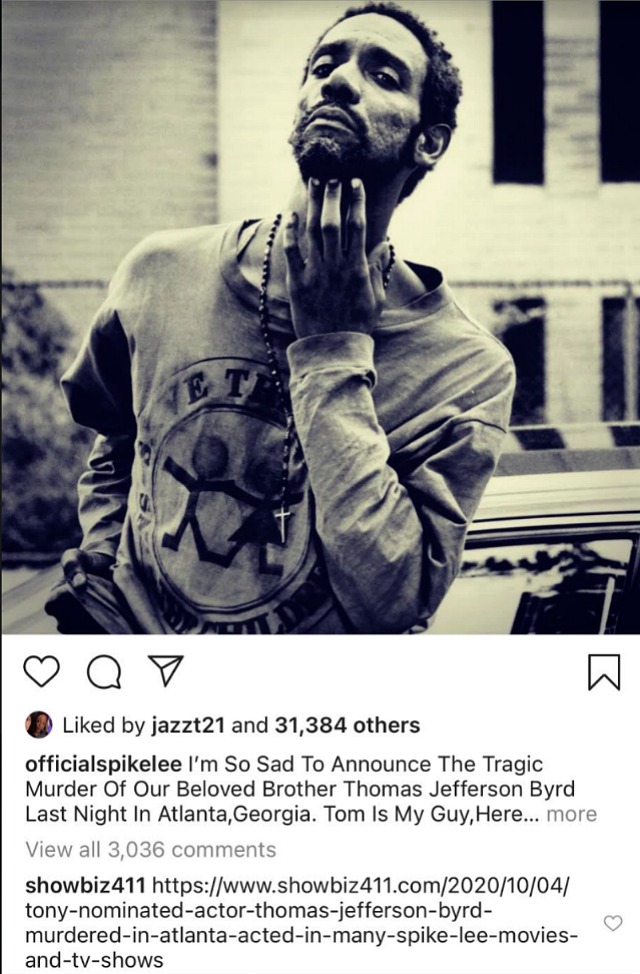
I have a journo pally…actually two journo pallies who’ve been telling me that I can’t see the forest for the trees, and that Trump is going to tap into something momentous or a geyser of Jett Rink oil is going to suddenly explode on his property…basically that the Fate Godz are going to spin things around and hand him an electoral victory on 11.3.
All along I’ve been saying “no, you can’t be right, there’s too much evil here, Americans are stupid but they’re not this stupid”.
But everything changed this morning. A new NBC News / Wall Street Journal poll, tabulated after the debate but before Trump was diagnosed with Covid-19, has Biden leading by 14 points. Will the fact that Trump’s cavalier, mask-averse attitudes led to widespread White House infections, including his own…will this expand or diminish Biden’s advantage?
I’m asking myself “what kind of drooling backwater voter would give Trump a sympathy pass because he was louche and arrogant enough to allow himself to get infected?” And the answer is “any voter who regards himself as a real–deal, true–blue American.”
I’m just saying that today I realized that the journo pallies were right all along…of course Trump will snatch victory from the jaws of defeat…of course he’s going to reverse the course of history and gravity and common sense and turn it all around. A Biden-over-Trump 14-point lead is nothing…nothing at all. A lot can happen over the next 30 days, and the obvious fact that God the Father Almighty wants Trump to win…well, just wait and see what happens.
“He’s such a flagrant, toxic narcissist.” That’s Bruce Springsteen’s view of @realDonaldTrump pic.twitter.com/FKLtK2TsVJ
— Channel 4 News (@Channel4News) October 18, 2016

So SNL decided against a skit about Trump spinning his health situation while inhaling Remdesivir inside his suite at Walter Reed Hospital. Because it would have felt brusque and cruel, and because they wanted the heavily hyped Jim Carrey (Joe Biden) and Maya Rudolph (Kamala Harris) front and center. But a Walter Reed skit might’ve worked. Carrey’s best bits came at the very beginning — blam-blam with the finger pistol and using the tape measure.
Harry Lewis’s “Toots”: “S’matter, doncha get it? A con. Guaranteed for life.” Thomas Gomez’s “Curly” Hoff: “Oh, we get it, all right.”
Never forget that in 1950, or roughly two years after Key Largo opened, Lewis and his then-girlfriend (and future wife) Marilyn Friedman invested $3,500 to open the Hamburger Hamlet restaurant at the corner of Sunset Blvd and Hilldale Ave. on the Sunset Strip. (That’s not the longtime location on the north side of Sunset near Cory Ave. but a block west of the Whisky a Go Go.) The restaurant was successful and grew into a chain of 24 locations. Harry and Marilyn sold all the HH restaurants for about $30 million in 1987. The couple also launched Kate Mantilini on Wilshire in 1987, and then a Woodland Hills location in ’03. Both KMs are now dead and gone. Harry passed on 6.9.13 at age 93.
I’ve been to the actual Key Largo. The Warner Bros. sound stage atmosphere ain’t what it used to be, if it ever existed at all.
I wish Trump didn’t have tough German genes, but he does. I have them also and know how that goes. So he walks out of Walter Reed in a week or two, but when could he resume his hillbilly Nuremberg rally speeches? Short time frame before 11.3. What are the odds?
Tweeted around 4 pm: “I’m not a fan of Presidents who have to go to hospitals. I like Presidents who don’t get sick, okay?”
— Donald J. Trump (@realDonaldTrump) October 3, 2020
Last night on the Strip the reddish amber moon was striking and beautiful to the naked eye, but the iPhone camera was useless against the splotchy glare of billboards, headlights, traffic lights and whatnot.
